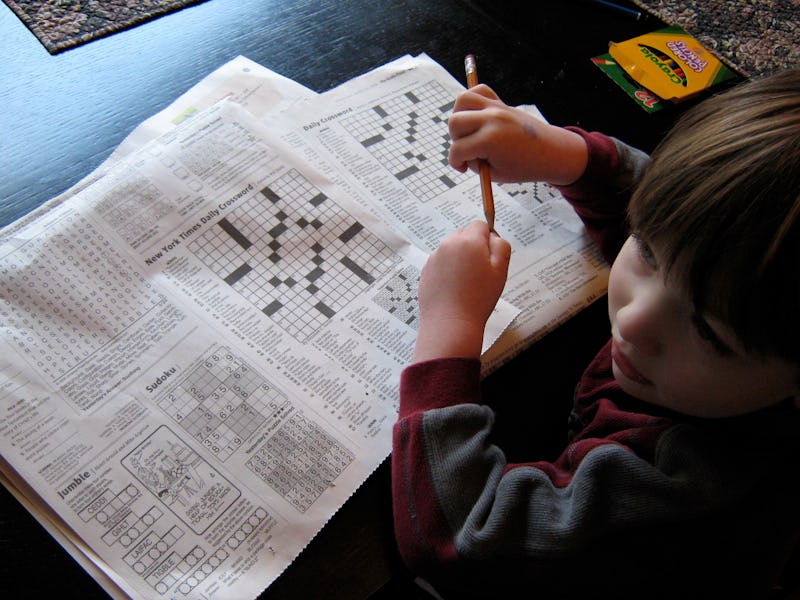Scientists Develop a Crossword Puzzle-Solving Neural Network
It's puzzling in godmode.

Crosswords are a novel way for computers to process language, according to a new study from an international team of computer scientists. Better yet, this research can also help you cheat the Sunday Times puzzle (do it in pen, brah!).
The goal of the work wasn’t to assist humans in picking the little locks that spring, fully-formed, from New York Times crossword puzzle editor Will Shortz’s forehead; rather, the computer scientists used crossword puzzles and definitions to train an artificial intelligence to parse and translate language. It’s a way to further “natural language processing,” a concept in artificial intelligence research that aims to mimic how humans learn. That we also get to utilize the resulting crossword-helper the researchers created is just icing.
The team of researchers recently outlined this work in the Transactions of the Association for Computational Linguistics. They realized that by throwing massive amounts of data (cribbed from half a dozen dictionaries and Wikipedia) at a computer system, the networks created a sort of “reverse dictionary” that makes crossword-like associations. The resulting program on the web, the Reverse Dictionary & Crossword Helper, does exactly what the no-frills name suggests.
How does it hold up? We tossed a few clues from Tuesday’s Washington Post crossword into the program’s linguistic maw (uh, crossword spoilers ahead). With an efficacy that harkens back to Ask Jeeves, it dispatched the factual clues with ease: Camden is in fact a city on the Delaware, amoebas are organisms with pseudopods. Even puns stood no chance — a “stable diet,” quite correctly, is hay.
The more abstract the clues, however, the more the reverse dictionary stumbled. This particular crossword was bowling themed (because of course it was) and asking the reverse dictionary what is a “fortunate roll of a bowling ball?” gets the strike part but not the lucky. And if you stray too far from a straight dictionary definition, the gaps in computer logic start to show. A “club cleaner” was not lye, steward, nor detergent — in this strange world of crosswords, it’s caddie.
That shouldn’t come as a surprise to the researchers. “Our system can’t go too far beyond the dictionary data on which it was trained,” said University of Cambridge computer scientist Felix Hill in a press release.
“But the ways in which it can are interesting, and make it a surprisingly robust question and answer system and quite good at solving crossword puzzles.”